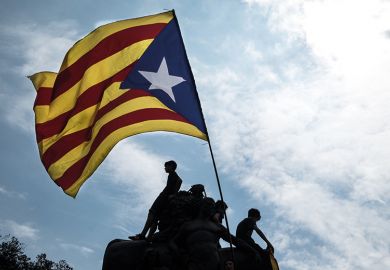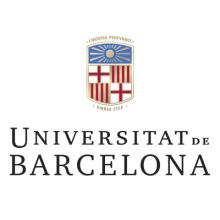Campaigners want to stop Spanish universities obtaining the right to take positions on non-academic issues guaranteed by law, which they claim will muzzle minority views.
Tensions between individual and institutional politics are particularly pronounced in Catalonia, where university statements supporting pro-independence leaders have attracted legal penalties. In 2020, Spain’s Supreme Court ordered the University of Barcelona to publicly denounce its statement of support, which six other universities had also backed.
The campaigners who brought that case, Academia for Coexistence, have sent an open letter to Spanish senators asking them to scrap an article in Spain’s long-debated higher education reform law, which has passed the lower house of parliament and is pending approval by the upper chamber.
A line from the draft law on universities’ staff assemblies would legally guarantee them a role in “analysing, debating and taking positions on issues of special social, cultural, legal, economic or political importance”, opening the door to more pro-independence declarations, critics claim.
“‘Catholicism is the true religion’, we don’t think this should be expressed by the university; if we say only women are sexually attractive, this is not something which is objective, it’s an opinion; if we say whatever football club is the best in the world, this should not be the opinion of a public institution,” said Juan Carlos Aguado, a professor at the Universitat Politècnica de Catalunya (UPC). “If a university expresses opinions like that, the people who don’t share them are going to feel excluded.”
University staff assemblies in Spain are supervisory bodies, with members elected from different faculties, although not necessarily in proportion to their size. When not rubber-stamping annual spending, Professor Aguado said UPC’s assembly used to take symbolic votes on international human rights issues, but since 2000, it had become increasingly involved in domestic politics, such as by endorsing Catalan declarations on self-determination. The 2017 Catalan independence referendum, which was ruled unconstitutional by national courts, further heightened tensions.
The January open letter by Academia for Coexistence had gathered almost 1,300 signatures from academics across Spain and beyond at the time of writing. Despite court cases and other organised opposition, some Catalan university rectorates want the draft law to pass in its current form.
“Individuals retain the right to express their concerns. If the government or the assembly of a university express their opinion, it in no way invalidates or erases the right of individuals to express their opinion,” said Pablo Pareja Alcaraz, vice-rector for faculty and community relations at Pompeu Fabra University in Barcelona.
“I don’t see this as a trade-off or a conflict, I see it as completely complementary,” he said, adding that it was “a little utopian” to ask universities to remain totally detached from politics. “It’s up to each of the communities to decide what topics affect the university as a whole and which are outside their primary interests. As long as universities exercise this right responsibly, no one should be scared or concerned.”
A spokesman for the University of Barcelona’s rectorate said that universities were “entitled to the fundamental duty of impartiality”.
“According to some views, this implies the inability to express any thoughts or statements on issues that might raise debate in the public sphere,” he said, adding that the rectorate instead interpreted impartiality as meaning “universities cannot treat their members differently depending on arbitrary factors”, including political positions.
“We agree with the fundamental relevance of the principle of neutrality that applies to universities as public institutions. Still, we do not consider that this neutrality implies the inability to analyse, debate and position those issues of special importance for society,” he added.
Register to continue
Why register?
- Registration is free and only takes a moment
- Once registered, you can read 3 articles a month
- Sign up for our newsletter
Subscribe
Or subscribe for unlimited access to:
- Unlimited access to news, views, insights & reviews
- Digital editions
- Digital access to THE’s university and college rankings analysis
Already registered or a current subscriber?










